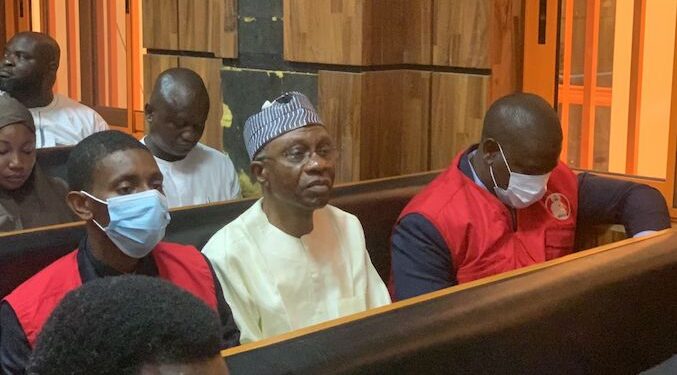On Tuesday, confusion arose as the Nigerian federal government presented documents indicating that former President Muhammadu Buhari approved the redesign of the nation’s currency in 2022. The documents were tendered in the ongoing prosecution of the immediate past Governor of the Central Bank of Nigeria (CBN), Mr. Godwin Emefiele, who faces charges related to the redesign of the N200, N500, and N1,000 notes allegedly without proper approvals.
During the trial, Mr. Rotimi Oyedepo, lawyer for the Economic and Financial Crimes Commission (EFCC), sought to introduce evidence, including a letter from the former president’s Chief of Staff conveying Buhari’s approval for the currency redesign. The court questioned whether Emefiele’s charges pertained to the lack of presidential approval for the redesign.
Despite these questions, the court admitted the documents, which included a letter dated October 13, 2022, confirming Buhari’s approval, and another letter from Emefiele dated October 6, 2022, seeking this approval.
The prosecution’s first witness, former CBN Director of Currency Operations Mr. Ahmed Bello Umar, testified that the apex bank’s management had directed his department to draft a memo on the redesign in August 2022. Under cross-examination by Emefiele’s lawyer, Mr. Mamud Magaji, Umar admitted that Buhari approved the redesign and that he supervised the distribution of the new notes across CBN’s 37 branches.
Umar also disclosed that he signed the redesigned notes alongside Emefiele, although he was not present at their official launch, which he watched on television.
Another key witness, Mr. Ahmed Halilu, Managing Director of the Nigeria Security Printing and Minting Company Plc (NSPMC), testified about working closely with the CBN on the redesign. Halilu revealed that he had informed Emefiele that the federal government’s printing press lacked the capacity to produce the redesigned notes, suggesting instead to engage De La Rue of the UK, the original designers of the currency.
Halilu explained that De La Rue provided two options for the redesign, one of which was approved and subsequently produced at a cost of £205,000 paid by the CBN. He emphasized that the cost of printing the new notes was the same as the old ones and that the redesign was carried out entirely locally. Differences between the sample approved by Buhari and the final product, such as QR codes and watermark positioning, were noted only after production.
Under cross-examination, Halilu admitted that all approvals for the redesign were channeled through Emefiele and that the final currency was deemed fit and proper for use.
Emefiele, arraigned on May 15 on a four-count charge before Justice Maryanne Anenih of the High Court of the Federal Capital Territory, denied the charges and was granted bail in the sum of N300 million. The EFCC alleges that Emefiele approved the printing of new naira notes without the CBN Board’s recommendation or the President’s explicit approval, causing public injury.
The charges include the unauthorized approval of printing 375,520,000 notes at a cost of N11 billion, 172 million colored swapped N500 notes at N4.4 billion, and 137,070 pieces of colored N200 notes at N3.4 billion. Additionally, Emefiele is accused of withdrawing N124,860,227 from the Consolidated Revenue Fund of the Federation without proper authorization.
The trial has been adjourned to September 19 for further proceedings.


